Raiders of the Vanishing Middle Class
The McKinsey and Company Effect of Profits Over People Since 1926
McKinsey & Company, the world’s most influential consulting firm, operates largely out of the public eye, wielding unparalleled influence over how the world is run. With a clientele ranging from Fortune 500 corporations to governments, McKinsey makes decisions that impact millions of lives. However, scandals surrounding its work with companies like Purdue Pharma during the opioid crisis, its involvement in vaccine distribution during the COVID-19 pandemic, and its ties to authoritarian regimes have raised serious ethical concerns.
Behind McKinsey’s glossy image lies a troubling narrative: a consulting powerhouse whose entanglements with powerful corporations and governments blur the line between public service and private profit. While often regarded as a neutral adviser, McKinsey’s dual role as a consultant for both the public and private sectors reveals a pattern of questionable conflicts of interest. The firm stands accused of facilitating corporate greed, regulatory evasion, and policies that favor its clients at the expense of the public good.
The Origins of McKinsey: From Management Consulting to Global Power
Founded in 1926 by James O. McKinsey, the firm began modestly, advising companies on efficiency improvements and operational strategies. By the 1950s and '60s, under the leadership of Marvin Bower, McKinsey grew exponentially into a global management consulting juggernaut. It not only helped companies optimize operations but also influenced strategic decision-making in boardrooms worldwide. McKinsey secured high-profile government contracts and became known as the go-to consultant when significant, difficult decisions needed to be made.
As globalization advanced, McKinsey's client base expanded to include not just corporations but governments, public health agencies, and international organizations like the World Bank. This convergence of public and private work created opportunities for McKinsey to subtly influence policy, legislation, and corporate decision-making, all while maintaining its image as a neutral player. However, as the firm became involved in some of the world’s most controversial industries and crises, its reputation for neutrality began to crack.
The Hidden Hand of McKinsey: How Consulting Giants Are Dismantling the Middle Class
The Atlantic’s compelling critique of McKinsey & Company reveals how this influential consulting giant has been instrumental in dismantling the middle class. By advising corporations to slash costs in pursuit of short-term profits, McKinsey has championed a model that prioritizes executive bonuses over employee security.

This ruthless focus on maximizing shareholder value has led to widespread job outsourcing and layoffs, wreaking havoc on local economies and deepening the chasm of income inequality. In promoting a corporate culture that benefits the elite while neglecting the workforce, McKinsey not only enriches its clients but also accelerates the decline of the middle class. This troubling trend extends beyond McKinsey, as other major consulting firms follow suit, raising urgent questions about the ethical implications of their strategies and the real cost of their advice on society as a whole.

The Conflicted Role in the Opioid Crisis: Advising Purdue Pharma
Perhaps the most infamous example of McKinsey’s morally questionable conduct is its role in the opioid crisis. For years, the firm worked closely with Purdue Pharma, the maker of OxyContin, helping the company devise strategies to aggressively market its opioid painkillers, even as evidence mounted that these drugs were driving an epidemic of addiction and overdose deaths.

Internal documents revealed that McKinsey advised Purdue on how to “turbocharge” OxyContin sales, recommending that the company target high-prescribing doctors and pharmacies in areas rife with opioid addiction. They also suggested paying distributors like CVS and Walgreens to help increase opioid sales, encouraging a "rebate program" for pharmacies when patients overdosed—essentially profiting from the opioid crisis at both ends.
At the same time, McKinsey was also advising public health agencies, including state governments, on how to manage the opioid crisis, creating a stunning conflict of interest. By advising both the perpetrators and those attempting to solve the problem, McKinsey undermined efforts to address one of the deadliest public health crises in modern U.S. history.
In 2021, McKinsey reached a measly $573 million settlement with 47 U.S. states, the District of Columbia, and five territories over its role in the opioid crisis.
Although the firm did not admit wrongdoing, the settlement raised serious questions about its corporate ethics and responsibility. Despite this, McKinsey’s vast web of corporate and government relationships allowed it to continue operating in the shadows, largely untouched by public outrage.

Enabling Corporate Wrongdoing and Regulatory Evasion
McKinsey has been accused of advising companies on how to evade regulation, undermine oversight, or engage in ethically dubious strategies to protect corporate profits.
Examples include:
Purdue Pharma (Opioid Crisis):
McKinsey was directly implicated in Purdue’s strategies to keep opioids on the market despite mounting evidence of the drug’s role in the opioid crisis. Internal McKinsey documents showed they suggested ways for Purdue to counter regulatory pressure and mitigate legal risks, including paying pharmacy companies to push opioid sales and targeting high-volume prescribers.
This support contributed to the opioid epidemic, which led to widespread addiction and overdoses, making McKinsey a central figure in a public health catastrophe.
Juul (E-Cigarette Marketing to Youth):
McKinsey also worked with Juul Labs, advising the company on its marketing strategies, despite growing concerns that Juul was targeting young people with its e-cigarettes, contributing to a teen vaping epidemic. McKinsey reportedly helped Juul identify ways to increase customer “lifetime value,” including segmenting marketing based on age and consumer behavior, which critics claim encouraged youth addiction.

COVID-19 Pandemic: The Vaccine Conflicts
Physicians at McKinsey & Company: Influence and Conflicts of Interest
Physician Consultants at McKinsey
McKinsey & Company employs a notable number of physicians as consultants, with estimates suggesting that approximately 200 to 300 physicians work directly for the firm across various global offices.

These physicians come from diverse backgrounds, including specialties such as public health, internal medicine, surgery, and pediatrics. Their medical expertise allows McKinsey to offer “informed insights” into healthcare policy, medical practices, and operational efficiencies to clients, including government agencies, healthcare systems, and pharmaceutical companies.

Roles in Healthcare Facilities and Government
Physician consultants at McKinsey often engage with:
Healthcare Facilities: They assist hospitals, clinics, and health systems in areas such as patient care optimization, cost reduction, and strategic planning. Their role often includes analyzing clinical workflows, improving patient outcomes, and advising on the implementation of electronic health records (EHRs) and other technological advancements.
Government Entities: Physicians at McKinsey consult with governmental organizations, including the Department of Health and Human Services (HHS) and the Centers for Disease Control and Prevention (CDC). They provide guidance on public health initiatives, pandemic response strategies, and healthcare policy development, influencing legislation that shapes healthcare delivery across the nation.
Medical and Nursing Boards: Some McKinsey consultants may also hold positions on medical and nursing boards, giving them further influence over regulatory standards and practices in healthcare. This dual role raises significant ethical questions about impartiality and accountability.
Conflicts of Interest and Ethical Concerns
The presence of physicians at McKinsey creates several potential conflicts of interest:
Dual Loyalties: Physicians working as consultants may face a conflict between their responsibilities to patients and their obligations to McKinsey and its clients. If their consulting roles prioritize client interests over patient welfare, ethical dilemmas arise, particularly in areas like treatment recommendations and public health policies.
Influence on Policy: The involvement of physician consultants in shaping healthcare policy can lead to conflicts when their advisory roles align closely with the interests of the pharmaceutical or healthcare industry. For instance, McKinsey's consulting work with pharmaceutical companies and its advisory role in government health policies may blur the lines between public health interests and corporate profit motives.
Lack of Transparency: The dual roles of physician consultants in McKinsey and on medical boards may obscure transparency regarding conflicts of interest. If these individuals are involved in regulatory decisions affecting the very companies they consult for, it creates a troubling lack of accountability and raises questions about the integrity of public health policies.
Silencing Dissent: Reports suggest that McKinsey's influence extends to controlling narratives around vaccine safety and efficacy, particularly among healthcare professionals. The firm’s strategies to limit dissenting opinions can create a chilling effect on open discourse, compromising scientific integrity and public trust.
Advising Governments on COVID-19 Response
McKinsey’s involvement in the COVID-19 pandemic response adds another layer of controversy to the firm’s story. During the pandemic, McKinsey was contracted by federal agencies, including the Department of Health and Human Services (HHS) and the Centers for Disease Control and Prevention (CDC), to design and optimize vaccine rollout strategies. The firm’s recommendations encompassed logistical solutions for vaccine distribution, prioritization of key population groups for early vaccination, and communication strategies to counter vaccine hesitancy.

McKinsey's consulting reached beyond the United States. It provided advisory services to the World Health Organization (WHO) and other public health agencies, shaping global strategies for pandemic response. This involvement raised eyebrows regarding McKinsey's dual role as an adviser to both governments and pharmaceutical companies, leading to concerns about conflicts of interest.
Silencing Dissent: A Questionable Role
Reports have emerged suggesting that McKinsey played a role in advising public health authorities on how to manage the narrative surrounding COVID-19 and vaccination efforts. This included strategies aimed at countering misinformation and silencing dissenting voices. While the intention may have been to uphold public health messaging, critics argue that this approach risks stifling legitimate debate and criticism regarding vaccine safety and efficacy. What was the extent of their involvement in silencing dissent? Did dedicated doctors, striving to do no harm and care for their patients, face the repercussions of McKinsey's for profit maneuvers during the pandemic? Could Houston Methodist or the Texas Medical Board be connected to McKinsey and Company or another private consulting group pushing for vaccines for profit behind the scenes? Why is our government failing to investigate things that really matter?
In this context, the firm’s ability to sway public policy and health communication strategies becomes deeply problematic. By acting as a consultant to both public health authorities and private pharmaceutical companies, McKinsey stood at the crossroads of two powerful interests, raising the specter of self-serving motives behind its advice.

Shaping Vaccine Policies and Legislation
McKinsey’s behind the scenes fingerprints can be detected on various policies that encouraged or mandated vaccine uptake, including the introduction of vaccine passports and vaccination mandates for certain industries or public spaces. These policies, while ostensibly designed to protect public health, also had the effect of bolstering demand for vaccines—potentially benefiting McKinsey’s private clients in the pharmaceutical sector.
This overlapping involvement in both public health governance and private pharmaceutical strategy was ripe for conflicts of interest. McKinsey’s opaque relationships with both government agencies and vaccine manufacturers should really make people question the vaccine rollout process as much as their involvement in the opioid epidemic is being questioned. While McKinsey has not been directly implicated in any illegal activity surrounding its work on COVID-19 (yet), the moral implications of its dual roles have led many to seriously question the firm’s ethics (it would not be surprising for this firm to later have another measly amount paid out by them for their role in the “COVID” response much like the opioid crises they helped fuel).

It would be fascinating to uncover all the emails, texts, contracts, and deals tied to McKinsey during the pandemic, especially given their extensive work with agencies and top clients like the Department of Defense and the Bill and Melinda Gates Foundation, both of which significantly benefited from the vaccine rollout.

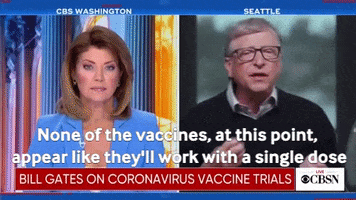




Ties to the FDA and Drug Approval Processes
McKinsey’s relationship with the U.S. Food and Drug Administration (FDA) further complicates the picture. For years, McKinsey has provided consulting services to the FDA, helping the agency streamline its operations and improve its processes for drug approvals. During the pandemic, the FDA was responsible for issuing Emergency Use Authorizations (EUAs) for COVID-19 vaccines, a critical step in getting vaccines to market quickly.

Although there is no direct evidence that McKinsey influenced specific EUA decisions, their ongoing work with both the FDA and vaccine manufacturers raises concerns about regulatory capture—the idea that regulators (the FDA) might be unduly influenced by the companies they are supposed to oversee. McKinsey’s involvement in both advising the FDA and helping vaccine companies navigate regulatory challenges could be viewed as a conflict of interest, as the firm’s private-sector clients stood to benefit from swift approvals.

For example, McKinsey’s advice to pharmaceutical companies on how to meet FDA requirements for EUA approval could have been shaped by its insider knowledge of the FDA’s operations, gained from years of consulting work with the agency. This blurring of lines between public and private roles is at the core of the ethical concerns surrounding McKinsey’s work.

Governments Using McKinsey to Circumvent Accountability
Another troubling aspect of McKinsey’s influence during the pandemic was how governments, especially in the U.S., Canada, Australia, Europe, and beyond seems to have relied on the firm to circumvent traditional accountability mechanisms. In many cases, McKinsey was awarded no-bid contracts, meaning its services were procured without the usual competitive process that ensures transparency and value for taxpayers. This allowed governments to quietly outsource major parts of their pandemic response to a private firm without the oversight that would normally apply to such critical public health decisions.

For instance, in France, McKinsey played a central role in designing the country’s vaccine rollout strategy.
Yet, the French government faced a public outcry when it was revealed that McKinsey had been paid millions of euros for its consulting services, despite many citizens questioning whether such private-sector expertise was necessary for public health management.

The scandal, dubbed “McKinseygate,” led to investigations and further criticism of how governments were handing over key decisions to an unaccountable private firm.

Ties to Authoritarian Regimes
Beyond its involvement in Western democracies, McKinsey has a history of working with authoritarian governments and regimes with questionable human rights records, raising even more ethical concerns. The firm has advised regimes such as Saudi Arabia, China, and Russia on various economic development projects and policy strategies, sometimes directly supporting governments accused of repressing their populations.

One of the most controversial instances of this was McKinsey’s work in Saudi Arabia. The firm was deeply involved in advising Crown Prince Mohammed bin Salman on his economic reform agenda, known as Vision 2030, which sought to diversify the Saudi economy away from oil. However, McKinsey’s work with the Saudi government came under intense scrutiny after it was revealed that the firm had provided reports identifying dissidents who were critical of the regime on social media. Some of these dissidents were later targeted by the government, with reports linking their arrests to McKinsey’s research.
This raised serious questions about McKinsey’s complicity in human rights abuses and the extent to which the firm would go to please its authoritarian clients. While McKinsey denied that its work directly contributed to any human rights violations, the controversy highlighted the dangers of consulting firms becoming entangled with oppressive regimes, where the lines between economic advice and political repression are dangerously blurred.
The Need for Greater Transparency and Accountability
McKinsey & Company’s vast network of clients across both the public and private sectors, coupled with its opaque operations, has made it a lightning rod for criticism. The firm’s conflicts of interest, involvement in ethical controversies, and close relationships with authoritarian regimes raise urgent questions about the role that private consultants should play in shaping public policy and governance.

As the firm continues to grow in influence, it is crucial that both governments and corporations demand greater transparency and accountability for its actions. Without these safeguards, McKinsey will remain a shadow power, pulling the strings of global governance while pursuing profit at the expense of the public good.




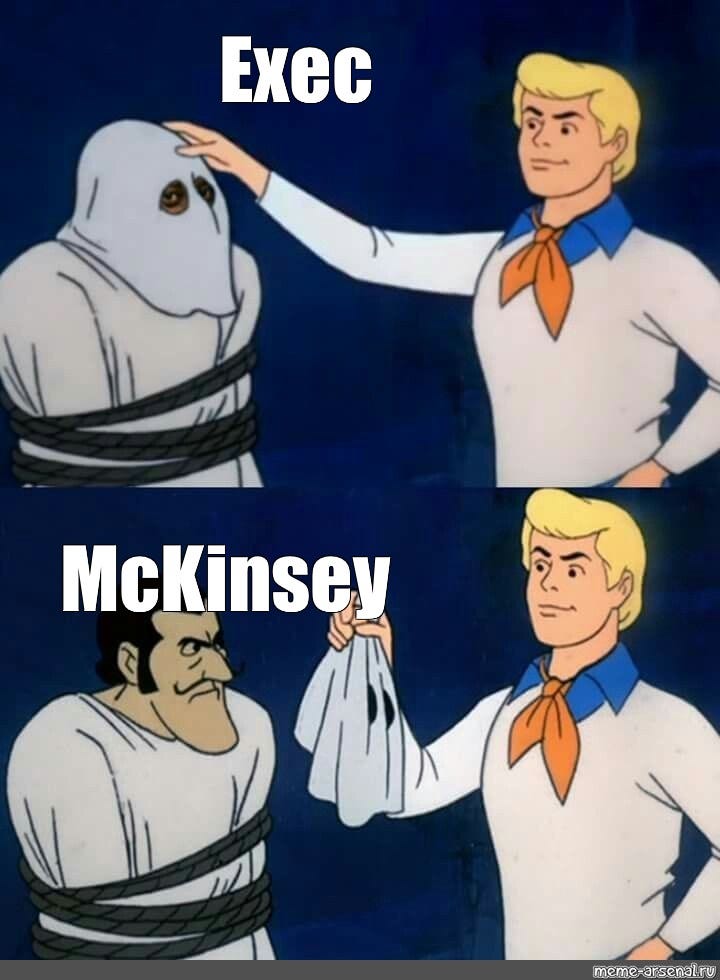

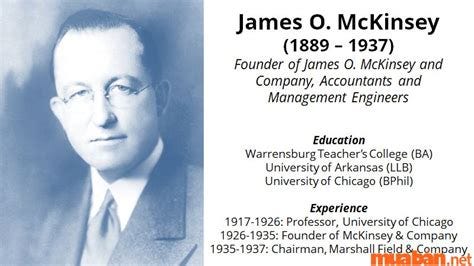



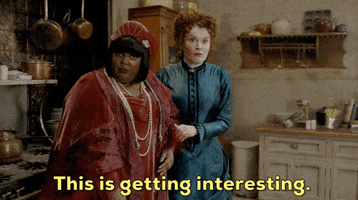


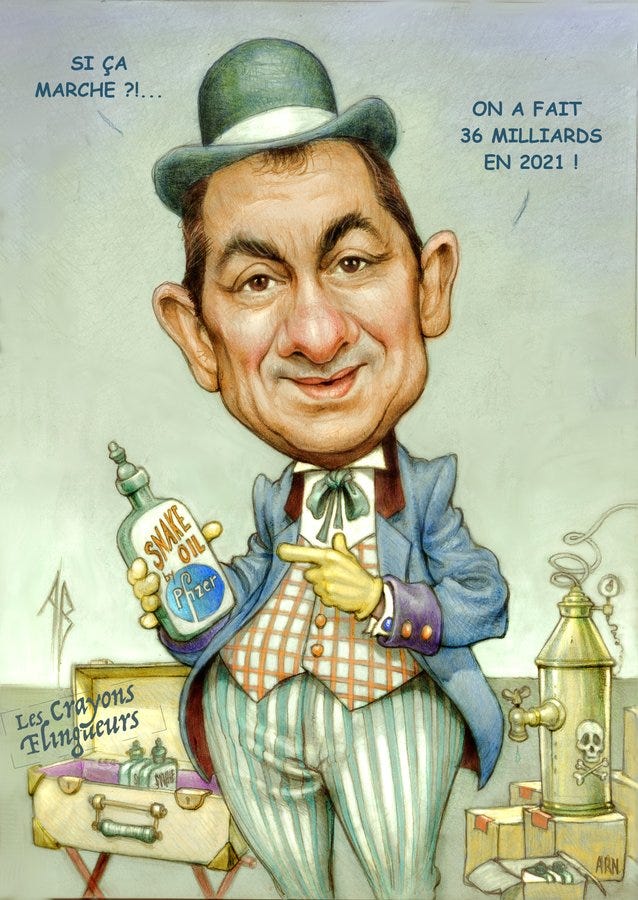

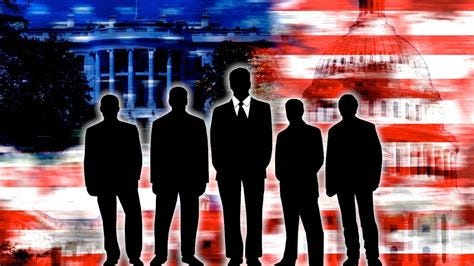
Hola bb!
wow, this is a great resource and very interesting.
did they have something to do with the processed sugar industry? i did a quick search and didn't find anything.
and your examples also remind me of something i read in 'the case against sugar' by gary taub. the coffee industry wanted to grow coffee sales in Japan, and that had proved very difficult. they hired a consultant that concluded the same thing, after lots of research. they determined that the way to do that was to not try with the adults, that it was long game process that was to begin by selling coffee flavoured candies to the children. (i don't have the book with me to check who was the marketing company.)
McKinsey was heavily involved in the corruption of South Africa's electricity power Giant Eskom and State owned Transnet Rail & Goods Transport as well as State Capture with other colluders.